Swedish Forest Industries (SFI) has called the EU Forest Strategy “an unacceptable and far-reaching proposal to regulate forest planning, monitoring, management, and industry production”.
The SFI has criticised a leaked copy of the draft strategy, which it maintains is trying to regulate forestry throughout the EU.
“The draft proposal clearly oversteps the member states competence on forest policy,” says Emma Berglund, forest director of international and EU affairs at SFI.
It is remarkable that the Commission so obviously disregards the strong and clearly expressed views
SFI has accused the Commission of proposing “not only a strategy, but in fact a common EU forest policy” that expresses “a clear lack of understanding of how forest management and the forest-based industries work and their full contributions to a climate-neutral society”.
SFI also accuses the Commission of ignoring the European Council and Parliament reports on forestry in 2020. “It is remarkable that the Commission so obviously disregards the strong and clearly expressed views of [these] two institutions,” claims Anna Holmberg, director and head of the SFI Brussels office.
“This indicates a severe tone of deafness in the Commission, which will alienate many important stakeholders, such as member states, forest owners, investors, and forest industry workers.”
Lessons for Ireland
So far there has been no debate or publicly stated Irish private or State view on the EU strategy despite overregulation that has caused 18 months of a forestry licensing crisis.
The overregulation that the Swedes fear has been part and parcel of Irish forestry practice for decades as Irish practitioners are required to apply for repeated licences from first thinning to final harvest and from planting to constructing access roads.
The Irish forestry and forest products sector looks with envy at most other member states where, up to now, forestry is valued for its economic, social and environmental roles.
Sweden has good reason to fear the EU strategy and so should Ireland.
The connection between sustainable forest management and the role of wood in displacing fossil-based materials has been missed – or dismissed – in Ireland’s climate debate. Berglund warns of a similar approach by the Commission, where “an overall understanding is clearly missing of how forestry and wood-based value chains work and contribute to mitigating climate change”.
Forest owners
should obtain
full value
for their
investments
At a time when timber prices are at an all-time high, forest owners must ensure they get full value for their harvested timber, maintains Irish Forest Owners (IFO) secretary Olive Leavy.
The IFO is the representative body for most private forestry producer groups in Ireland.
“Sitka spruce, fully mature, well stocked and managed, is making over €35,000 and up to €40,000/ha,” she says.
“Numerous forests planted in the 1980s and 1990s are now at clearfell stage and the IFO is concerned that many owners are unaware of the true value of their timber.”
Great vigilance is required when thinning
IFO chair Nicholas Sweetman advises forest owners to get impartial advice from independent forestry experts, Teagasc and producer groups before agreeing to sell their timber.
“Owners should be aware of the various classes, quantities and values of timber whether thinning or clearfelling,” he said.
“Great vigilance is required when thinning to guard against unscrupulous operators raiding the plantation of selected timber and severely damaging the future potential of the remaining crop.”
He acknowledges the recent “difficulties with felling and planting licences” but said “forestry is a secure and valuable investment”.
Donal Whelan of the Irish Timber Growers Association (ITGA) said it was important that private forest owner are fully informed of timber prices.
“I encourage timber growers, forestry companies, forest owner groups, timber processors and foresters to make prices available to the Wood Price Quarterly (WPQ),” he said.
“This confidential report is issued by UCD in collaboration with the ITGA.”
Standard Timber Sales Data Forms for private roundwood sales can be obtained from UCD (roundwooddatabase@ucd.ie).
Also check out ITGA website (https://itga.ie/services/information/wpq).
Information required for
felling licence applications
The Department has recently reviewed its systems for the preparation of Appropriate Assessment (AA) reports “to optimise the time of [Department] ecologists to concentrate on the ecology aspects of each [private tree felling licence] application”.
A recent circular outlined how the Department can now produce AA reports “more efficiently, provided there is a good-quality harvest plan in accordance with the Standards for Felling and Reforestation.
“Therefore, in relation to tree felling licence applications, we are now asking that a Natura Impact Statement (NIS) should only be provided if specifically sought by the Department,” the circular states.
Analysis has shown that around half of the tree-felling licence applications screened in for AA are incomplete
This represents a change to the Department’s approach a year ago when it stated that “files with an NIS attached were receiving priority treatment”.
Since then, a number of ecologists have been recruited by forestry companies, while close to 30 ecologists are now employed by the Department, Coillte and the private sector.
Analysis has shown that around half of the tree-felling licence applications screened in for AA are incomplete and these “cannot be processed until such issues are addressed”, the circular maintained. A spokesperson for the Association of Irish Forestry Consultants (AIFC) disputes this but “welcomes a meeting scheduled this week to discuss felling licence application procedures with Department officials”.
Veon announces new
PEFC certification scheme
Forestry company Veon Ltd has announced that “a significant portfolio” of its forests has achieved PEFC certification. This allows harvested timber from Veon clients’ forests ready access to timber processing mills that have chain of custody certification. PEFC is an internationally recognised, independent non-governmental organisation promoting sustainable forest management.
“The successful award of certification demonstrates the sustainable nature of our clients’ forest, something that is as important today as it has ever been,” maintains Daragh Little, MD of Veon Forestry.
There are economic incentives in achieving certification, but Trevor McHugh, MD of Veon Commercial, maintains there are wider benefits.
I wish to compliment the team for their professionalism and dedication to sustainable forest management
“This is the first step we have taken to roll out PEFC as our chosen certification standard in Ireland and it will form the basis of our approach to certification as we pursue our international corporate social responsibility projects,” he says.
William Merivale, national secretary, PEFC Ireland congratulated Veon in achieving certification.
“I wish to compliment the team for their professionalism and dedication to sustainable forest management and look forward to continuing collaboration over the coming years.”
RDS forestry awards launched
The closing date for the RDS Irish Forestry Awards is 30 July. There are three prize categories – production, community and Teagasc farm forestry. The awards are open to forest owners – north and south. In addition to award certificates and specially commissioned medals and trophies, there is a €9,000 prize fund. Application forms are available at www.rds.ie/agriculture or by email (forestry@rds.ie) or contact the RDS (01-240 7215).
Swedish Forest Industries (SFI) has called the EU Forest Strategy “an unacceptable and far-reaching proposal to regulate forest planning, monitoring, management, and industry production”.
The SFI has criticised a leaked copy of the draft strategy, which it maintains is trying to regulate forestry throughout the EU.
“The draft proposal clearly oversteps the member states competence on forest policy,” says Emma Berglund, forest director of international and EU affairs at SFI.
It is remarkable that the Commission so obviously disregards the strong and clearly expressed views
SFI has accused the Commission of proposing “not only a strategy, but in fact a common EU forest policy” that expresses “a clear lack of understanding of how forest management and the forest-based industries work and their full contributions to a climate-neutral society”.
SFI also accuses the Commission of ignoring the European Council and Parliament reports on forestry in 2020. “It is remarkable that the Commission so obviously disregards the strong and clearly expressed views of [these] two institutions,” claims Anna Holmberg, director and head of the SFI Brussels office.
“This indicates a severe tone of deafness in the Commission, which will alienate many important stakeholders, such as member states, forest owners, investors, and forest industry workers.”
Lessons for Ireland
So far there has been no debate or publicly stated Irish private or State view on the EU strategy despite overregulation that has caused 18 months of a forestry licensing crisis.
The overregulation that the Swedes fear has been part and parcel of Irish forestry practice for decades as Irish practitioners are required to apply for repeated licences from first thinning to final harvest and from planting to constructing access roads.
The Irish forestry and forest products sector looks with envy at most other member states where, up to now, forestry is valued for its economic, social and environmental roles.
Sweden has good reason to fear the EU strategy and so should Ireland.
The connection between sustainable forest management and the role of wood in displacing fossil-based materials has been missed – or dismissed – in Ireland’s climate debate. Berglund warns of a similar approach by the Commission, where “an overall understanding is clearly missing of how forestry and wood-based value chains work and contribute to mitigating climate change”.
Forest owners
should obtain
full value
for their
investments
At a time when timber prices are at an all-time high, forest owners must ensure they get full value for their harvested timber, maintains Irish Forest Owners (IFO) secretary Olive Leavy.
The IFO is the representative body for most private forestry producer groups in Ireland.
“Sitka spruce, fully mature, well stocked and managed, is making over €35,000 and up to €40,000/ha,” she says.
“Numerous forests planted in the 1980s and 1990s are now at clearfell stage and the IFO is concerned that many owners are unaware of the true value of their timber.”
Great vigilance is required when thinning
IFO chair Nicholas Sweetman advises forest owners to get impartial advice from independent forestry experts, Teagasc and producer groups before agreeing to sell their timber.
“Owners should be aware of the various classes, quantities and values of timber whether thinning or clearfelling,” he said.
“Great vigilance is required when thinning to guard against unscrupulous operators raiding the plantation of selected timber and severely damaging the future potential of the remaining crop.”
He acknowledges the recent “difficulties with felling and planting licences” but said “forestry is a secure and valuable investment”.
Donal Whelan of the Irish Timber Growers Association (ITGA) said it was important that private forest owner are fully informed of timber prices.
“I encourage timber growers, forestry companies, forest owner groups, timber processors and foresters to make prices available to the Wood Price Quarterly (WPQ),” he said.
“This confidential report is issued by UCD in collaboration with the ITGA.”
Standard Timber Sales Data Forms for private roundwood sales can be obtained from UCD (roundwooddatabase@ucd.ie).
Also check out ITGA website (https://itga.ie/services/information/wpq).
Information required for
felling licence applications
The Department has recently reviewed its systems for the preparation of Appropriate Assessment (AA) reports “to optimise the time of [Department] ecologists to concentrate on the ecology aspects of each [private tree felling licence] application”.
A recent circular outlined how the Department can now produce AA reports “more efficiently, provided there is a good-quality harvest plan in accordance with the Standards for Felling and Reforestation.
“Therefore, in relation to tree felling licence applications, we are now asking that a Natura Impact Statement (NIS) should only be provided if specifically sought by the Department,” the circular states.
Analysis has shown that around half of the tree-felling licence applications screened in for AA are incomplete
This represents a change to the Department’s approach a year ago when it stated that “files with an NIS attached were receiving priority treatment”.
Since then, a number of ecologists have been recruited by forestry companies, while close to 30 ecologists are now employed by the Department, Coillte and the private sector.
Analysis has shown that around half of the tree-felling licence applications screened in for AA are incomplete and these “cannot be processed until such issues are addressed”, the circular maintained. A spokesperson for the Association of Irish Forestry Consultants (AIFC) disputes this but “welcomes a meeting scheduled this week to discuss felling licence application procedures with Department officials”.
Veon announces new
PEFC certification scheme
Forestry company Veon Ltd has announced that “a significant portfolio” of its forests has achieved PEFC certification. This allows harvested timber from Veon clients’ forests ready access to timber processing mills that have chain of custody certification. PEFC is an internationally recognised, independent non-governmental organisation promoting sustainable forest management.
“The successful award of certification demonstrates the sustainable nature of our clients’ forest, something that is as important today as it has ever been,” maintains Daragh Little, MD of Veon Forestry.
There are economic incentives in achieving certification, but Trevor McHugh, MD of Veon Commercial, maintains there are wider benefits.
I wish to compliment the team for their professionalism and dedication to sustainable forest management
“This is the first step we have taken to roll out PEFC as our chosen certification standard in Ireland and it will form the basis of our approach to certification as we pursue our international corporate social responsibility projects,” he says.
William Merivale, national secretary, PEFC Ireland congratulated Veon in achieving certification.
“I wish to compliment the team for their professionalism and dedication to sustainable forest management and look forward to continuing collaboration over the coming years.”
RDS forestry awards launched
The closing date for the RDS Irish Forestry Awards is 30 July. There are three prize categories – production, community and Teagasc farm forestry. The awards are open to forest owners – north and south. In addition to award certificates and specially commissioned medals and trophies, there is a €9,000 prize fund. Application forms are available at www.rds.ie/agriculture or by email (forestry@rds.ie) or contact the RDS (01-240 7215).



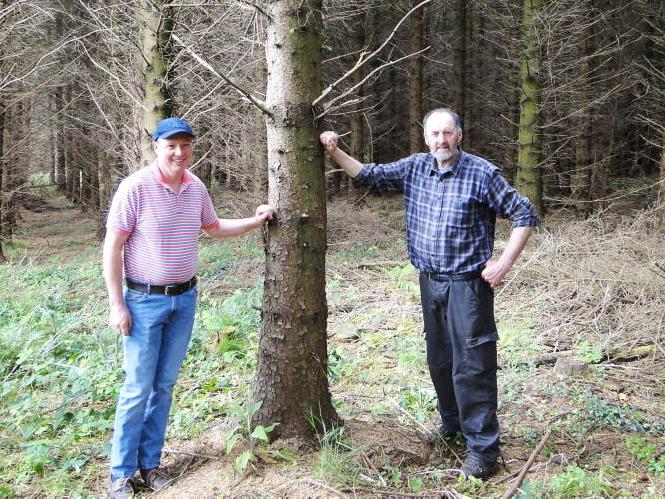

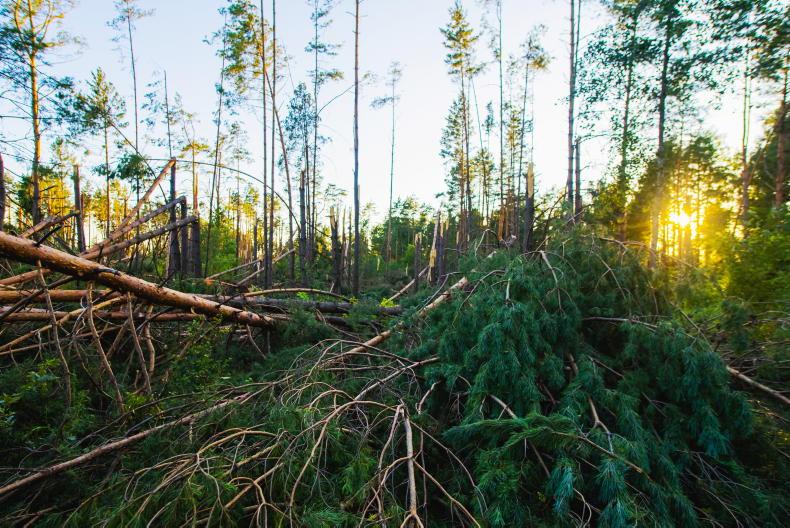
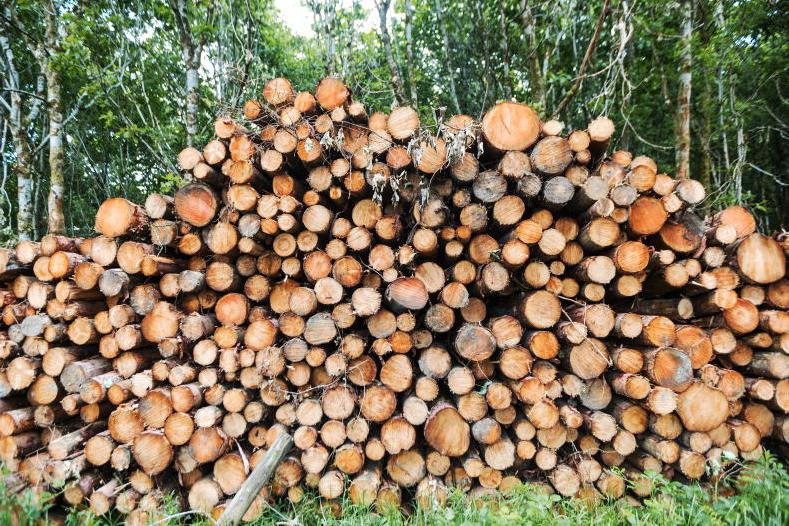
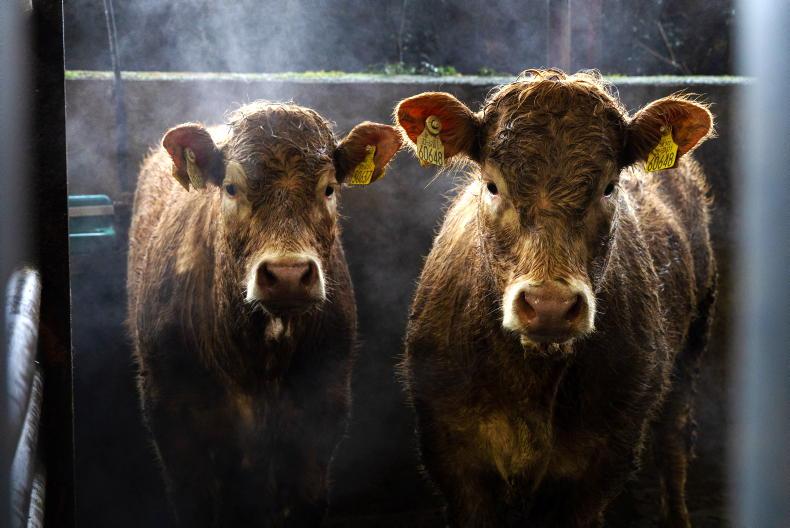
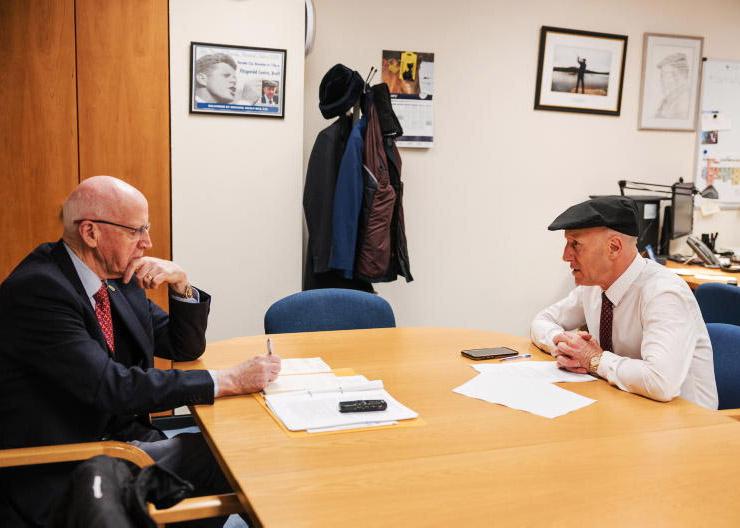
SHARING OPTIONS